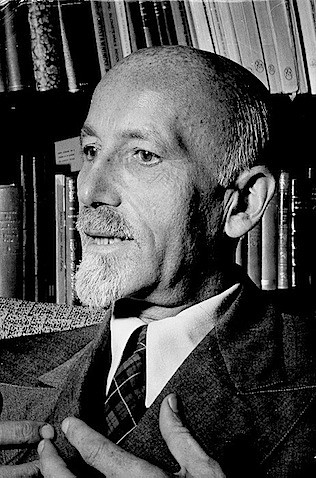Paul Brunton
Mentalism demonstrates that our experience of the whole world is nothing but our thoughts of it. These thoughts have no continuous existence and vanish only to be succeeded by others which are similar (but not identical) and thus give the illusion of smooth continuity. Hence the world we know is in a state of ever-becoming rather than of settled being. Thus a law of movement rules everything material and mental.
Now motion implies unsettlement, the dropping of an old position, thing or thought for a new one: that is it implies change. But this makes the universe not so much a structure as a flow. The reality of the world lies in its restlessness. The vaunted stability and solidity which the senses place before us are mere appearances. Such therefore is the inescapable illusoriness of the form which human experience takes.
A mechanism which is used for night advertising signs nicely illustrates this point. If two small adjacent boxes are fitted with electric bulbs which are made by a suitable mechanism to light up alternately, at any single moment either one of the bulbs will be illuminated or none. Yet whoever looks at them will see a continuous light flickering back and forth from left to right and back again.
Even at the moment when no burning bulb is registered on the retina of the eyes, when no glowing light is actually in existence, the eyes report the contrary!
Provided sufficient heat is brought to bear upon it, there is no substance, not even the hardest of metals, which cannot be melted and then transformed into gaseous vapor. And provided sufficiently powerful microscopic investigation is brought to bear upon a gas, it reveals itself as made up of scintillating points of light which are in perpetual movement. And yet ordinarily the senses tell us nothing of light as being, from the scientific standpoint, the ultimate stuff of the universe or of restlessness as being the ultimate state of the universe!
There is never a moment when the perpetual world-vibration pauses, never a fraction of a moment when the oscillation of any atomic energy comes to rest. Nothing abides. Science has recently come to speak in its descriptions of Nature as consisting not of things but rather of a tissue of events, a continuous series of happenings, that is a process.
What science has discovered with the help of cunning instruments ancient sages discovered more than two thousand years ago with the help of concentrated thought alone. “No man can twice enter the same river,” asserted Greek Heracleitus. “Whoever perceives in truth and wisdom how things pass away in this world, in his eyes there is not ‘It is’ in this world,” declared Indian Buddha, who also pointed out that nothing remains the same for two consecutive moments.
Excerpted from ‘The Wisdom of the Overself.’ The 121st birth anniversary of Paul Brunton is being observed on October 21







